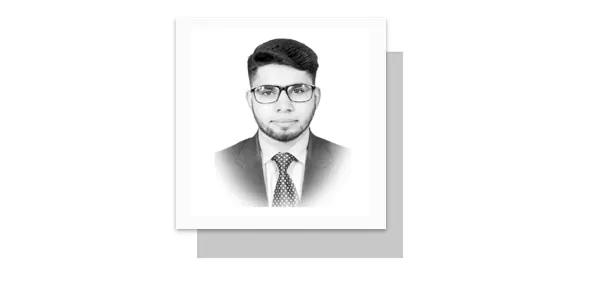INDIA has consistently bragged about being the world’s largest democracy and having an ostensibly ‘secular’ outlook for many decades. The Nehruvian political ideology, which espoused the virtues of secularism as an important pillar of the Indian nation, served as the initial foundation for India’s political landscape after gaining independence. India has significantly departed from its once-celebrated founding principles in modern times, with the RSS/ BJP dispensation now in power embracing a narrow ideology based on “Hindutva” ideals. Therefore, several well-known western media outlets have recently expressed their concerns about this apparent change and the implications of India’s ongoing democratic ‘backslide’. Despite India’s rise to one of the world’s most rapidly expanding economies and its crucial role in the US-led efforts to contain China, it is difficult to ignore the concurrent rise in repressive measures aimed at stifling dissent within its borders.
Unfortunately, the international community has mostly held back from openly criticizing New Delhi in an effort to preserve a strategic alliance. Most foreign governments, with the exception of Beijing and Islamabad, view India as a crucial trading partner and are therefore reluctant to express their concerns. Even leaders of the Muslim world have kept their opinions on the plight of underprivileged Muslims in India relatively quiet. It is true that self-interest, rather than moral obligations, predominately drives international relations. However, New Delhi’s significance to India’s democratic fabric ensures that the country’s deterioration of democratic standards remains a significant topic of discussion.
India frequently highlights its achievements, from the smooth operation of elections to the unwavering submission to civilian authority, and is proud to wear the title of “world’s largest democracy”. Additionally, programs like the Quadrilateral Security Dialogue (QUAD) and broader international cooperation aimed at confronting China are frequently presented as a joint effort by democratically inclined countries. In response to the stark reality of India’s democratic erosion, many parties have expressed concern, particularly among western observers. Therefore, economic and strategic concerns are frequently cited as the reason why the international community is reluctant to discuss this issue openly, but India’s importance to its democratic credentials keeps discussions about its democratic trajectory ablaze.
On the other hand, the Indian authorities’ escalating persecution of journalists and online critics due to their criticism of government policies and practices, as exemplified by their use of counterterrorism and sedition laws to prosecute them, represents a flagrant disregard for the basic right to freedom of expression. The Indian authorities must show respect for this fundamental human right, immediately release journalists who have been wrongfully detained on false or politically-motivated charges as a result of their critical reporting and stop systematic persecution of journalists and repression of independent media. India must be prepared for whatever may happen as the world continues to embrace it more and more. It is crucial to understand that New Delhi will feel more empowered to intensify its repressive crackdowns inside its borders the more leniency and immunity it receives.
Lastly, the consolidation of a Hindu-majoritarian political style, the excessive concentration of power within the executive branch and the ensuing erosion of independent institutions and the repression of political dissent and press freedom are the three main areas of concern when evaluating India’s regression in terms of democracy. While each of these issues is significant in and of itself, the presence of all of them together poses a serious threat to Indian democracy as a whole. The foundations of the US-India strategic partnership, America’s broader interests in the Indo-Pacific region, and international initiatives aimed at promoting democracy will all be jeopardized if India’s democratic decline continues. This includes social stability and prosperity for more than a billion Indians.
—The writer is contributing columnist, based in Islamabad.
Email: [email protected]










